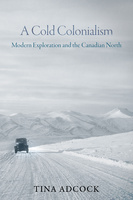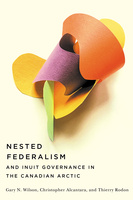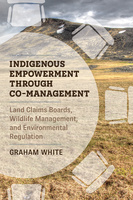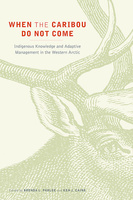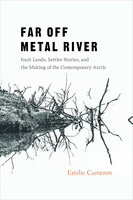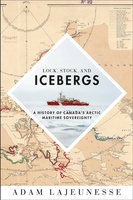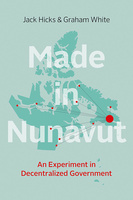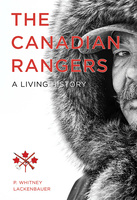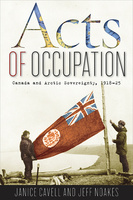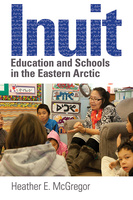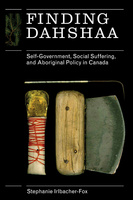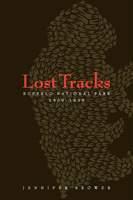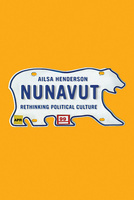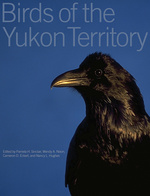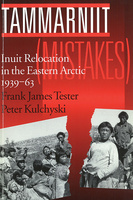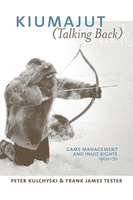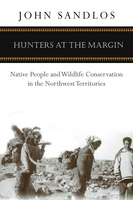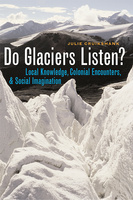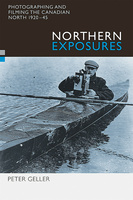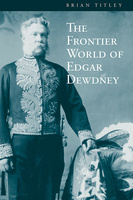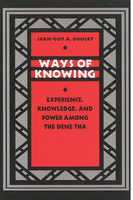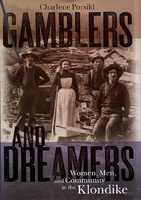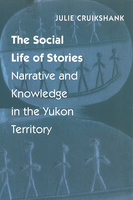A Cold Colonialism
Modern Exploration and the Canadian North
A Cold Colonialism reframes exploration as a modern enterprise – one through which southern Canadians and Americans sought to exert control over northern peoples and their lands.
Nested Federalism and Inuit Governance in the Canadian Arctic
Nested Federalism and Inuit Governance in the Canadian Arctic explores how three northern regions are reformulating the relationship between Indigenous peoples and the state, and transforming Canadian federalism in the process.
Indigenous Empowerment through Co-management
Land Claims Boards, Wildlife Management, and Environmental Regulation
This book is a clear, compelling, and evidence-based assessment of the effectiveness of co-management boards in providing Indigenous peoples with genuine influence over land and wildlife decisions affecting their traditional territories.
Birds of Nunavut
The first complete survey of the birds of Nunavut, this fully illustrated reference work identifies and documents the distribution, ecology, behaviour, and conservation of the species that live in and migrate through the territory.
When the Caribou Do Not Come
Indigenous Knowledge and Adaptive Management in the Western Arctic
When the Caribou Do Not Come highlights the knowledge and perspectives of northern Canadian communities that have been dealing with caribou population fluctuations for generations.
Far Off Metal River
Inuit Lands, Settler Stories, and the Making of the Contemporary Arctic
Drawing on the story of the 1771 Bloody Falls massacre, human geographer Emilie Cameron explores the relationship between stories and colonialism, challenging readers to examine their perceptions of the contemporary Arctic and its peoples.
Lock, Stock, and Icebergs
A History of Canada’s Arctic Maritime Sovereignty
Lock, Stock, and Icebergs recounts the events, pressures, and behind-the-scenes negotiations that shaped Canada’s legal claim to the Northwest Passage and the waters of the Arctic Archipelago.
Made in Nunavut
An Experiment in Decentralized Government
Made in Nunavut provides a definitive account of how an innovative government was designed and implemented in Canada’s Eastern and Central Artic.
The Canadian Rangers
A Living History
A lavishly illustrated history of the Canadian Rangers and their evolving role as defenders and stewards of Canada’s remote regions.
Acts of Occupation
Canada and Arctic Sovereignty, 1918-25
This fascinating tale of the rivalries and intrigues that played out as Canada secured the Arctic illuminates an under-explored era in Canadian foreign policy.
Inuit Education and Schools in the Eastern Arctic
The first history of educational policy, practice, and decision making in the Eastern Arctic, now Nunavut.
Trail of Story, Travellers’ Path
Reflections on Ethnoecology and Landscape
A sensitive examination of meanings of landscape, this book draws on the author’s rich experience with diverse environments and peoples in western Canada.
The Industrial Transformation of Subarctic Canada
A revealing history of human impact in the Canadian North, this book focuses on the causes and consequences of the industries that replaced the fur trade.
Home Is the Hunter
The James Bay Cree and Their Land
The James Bay Cree lived in relative isolation until 1970, when Northern Quebec was swept up in the political and cultural changes of the Quiet Revolution. Home Is the Hunter presents the historical, environmental, and cultural context from which this recent story grows.
Finding Dahshaa
Self-Government, Social Suffering, and Aboriginal Policy in Canada
Based on case studies of three self-government negotiations in the Northwest Territories, Finding Dahshaa is the first ethnographic study of the negotiation of self-government in Canada.
Nunavut
Rethinking Political Culture
Original and provocative, Nunavut explores political attitudes, behaviour, and institutions in Nunavut before, during, and after the creation of the new territory, challenging our understandings of how political cultures are generated and sustained.
Birds of the Yukon Territory
The result of a decade-long project, this lavishly illustrated book presents a wealth of information on bird distribution, migration and breeding chronology, habitat use, and on conservation concerns in the Yukon.
Tammarniit (Mistakes)
Inuit Relocation in the Eastern Arctic, 1939-63
Clifford Sifton, Volume 2
A Lonely Eminence, 1901-1929
This second colume in a two-part biography examines one of Canada's most controversial politicians during the twentieth century, especially his political activities.
Kiumajut (Talking Back)
Game Management and Inuit Rights, 1900-70
Examines Inuit relations with the Canadian state, with a particular focus on regulating Inuit based on government animal counting methods, and the emerging regime of government intervention.
Hunters at the Margin
Native People and Wildlife Conservation in the Northwest Territories
Hunters at the Margin examines the conflict in the Northwest Territories between Native hunters and conservationists, arguing that game regulations and national parks helped assert state authority over traditional hunting cultures.
Do Glaciers Listen?
Local Knowledge, Colonial Encounters, and Social Imagination
Focusing on these contrasting views of glaciers between Aboriginal peoples and European visitors in northern Canada and Alaska, Julie Cruikshank demonstrates how local knowledge is produced, rather than discovered, through colonial encounters, and how it often conjoins social and biophysical processes.
Northern Exposures
Photographing and Filming the Canadian North, 1920-45
Illustrated throughout with archival photographs, this book examines the photographic and film practice of the Canadian government, the Anglican Church of Canada, and the Hudson’s Bay Company, the three major colonial institutions involved in the arctic and sub-arctic.
Hunters and Bureaucrats
Power, Knowledge, and Aboriginal-State Relations in the Southwest Yukon
A timely anthropological examination of the effect of land claims settlements and co-management of resources on the Kluane First Nation of the Southwest Yukon.
The Frontier World of Edgar Dewdney
The Frontier World of Edgar Dewdney is a biography of a man who played a key role in the events which marked the political, social, and economic transformation of western Canada in the latter half of the nineteenth century.
Ways of Knowing
Experience, Knowledge, and Power among the Dene Tha
Drawing on twelve years of fieldwork at Chateh, Jean-Guy Goulet delineates the interconnections between the strands of meaning and experience with which the Dene Tha constitute and creatively engage their world.
Gamblers and Dreamers
Women, Men, and Community in the Klondike
Gamblers and Dreamers tackles some of the myths about the history of the North in the era of the gold rush.
The Social Life of Stories
Narrative and Knowledge in the Yukon Territory
In this illuminating study of indigenous oral narratives, Julie Cruikshank moves beyond the text to explore the social power and significance of storytelling.
The Klondike Stampede
This classic in Yukon gold rush literature was originally published in 1900 and has long been out of print.

